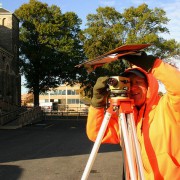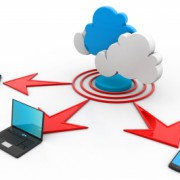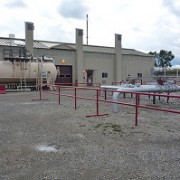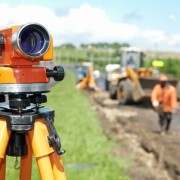A Look at How Shared Data Helps Oil and Gas Projects
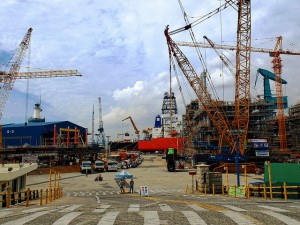 We are living in an era when new technologies such as cloud computing and big data are completely changing the way industries operate, and oil and gas surveying is certainly no exception. In fact, the oil and gas industry is particularly well suited to benefit from these technologies: as oil and gas drilling has become more complex over the years due to increased activity and crowded pipeline rights of way, big data has made it possible for oil and gas engineers to operate more intelligently and continue meeting their production goals. At the same time, cloud computing has been influential in ensuring that all employees working on a project have access to the same data. In this post, we’ll discuss the benefits of shared data on the cloud for oil and gas projects in more detail.
We are living in an era when new technologies such as cloud computing and big data are completely changing the way industries operate, and oil and gas surveying is certainly no exception. In fact, the oil and gas industry is particularly well suited to benefit from these technologies: as oil and gas drilling has become more complex over the years due to increased activity and crowded pipeline rights of way, big data has made it possible for oil and gas engineers to operate more intelligently and continue meeting their production goals. At the same time, cloud computing has been influential in ensuring that all employees working on a project have access to the same data. In this post, we’ll discuss the benefits of shared data on the cloud for oil and gas projects in more detail.
Covering Long Distances
Globalization is becoming the norm in business today, and it’s no longer unusual to see project teams spread out over long distances. However, this has always been the case with oil and gas projects; drilling, refining, and shipping have always taken place in different locations, and pipelines have always been needed to cover those long distances.
Now, with cloud data solutions, all oil and gas employees can gain access to a technology that allows them to share project and survey data with their colleagues, no matter where in the world those colleagues might be located. The data transfer can happen instantaneously, so the distances between office and field workers practically melt away to nothing.
Ensuring Accuracy and Version Control
Other forms of communication and data sharing, such as email, aren’t as effective as cloud-based sharing, specifically because they aren’t centralized. When you have a large team that’s spread out geographically, it’s important that everyone be on the same page, and working with the latest and most accurate data.
A cloud based data sharing platform provides this centralization. Any time a team member shares a survey document or other piece of data with a team member, it’s also made available for everyone else on the team to see. As circumstances change over time, having this centralized platform in place makes it easier for everyone to feel confident that they always have the right data in hand. If there’s every a question about what data they should be using, a team member need only access the data sharing platform, and they’ll instantly be able to pull up a record of the most recent data.
A data sharing platform also serves as an archive for important historical data. In the event that a user ever needs to look back at data from earlier in the project, the data sharing platform gives them that capability as well.
Universal Access
Another important reason that cloud data sharing platforms can help with oil and gas projects is that they can be accessed from anywhere, on any device. Team members working in the field using mobile devices will have access to the exact same platform that their colleagues in the office using traditional workstations will. The data that’s placed on the platform can be saved and accessed equally on both sets of devices.
This means that office workers will always be able to transfer standard operating procedures and other important project information to workers in the field, while those field workers will be able to instantly transfer survey data from the site back to the engineers in the office who need that data in order to get started with their work. The universal nature of a cloud data sharing platform can encourage better communication and speed up key aspects of the project.
To learn more about cloud data sharing for oil and gas surveying, contact Landpoint today.
Image source: SarahTz

